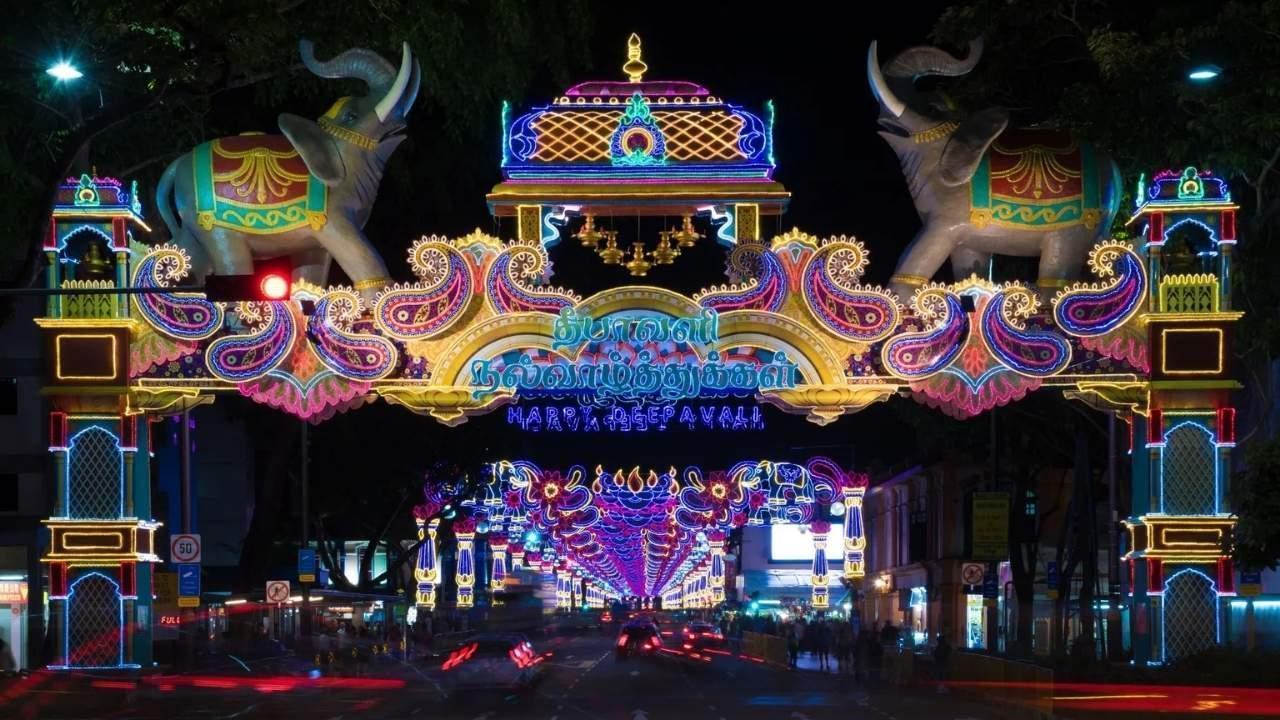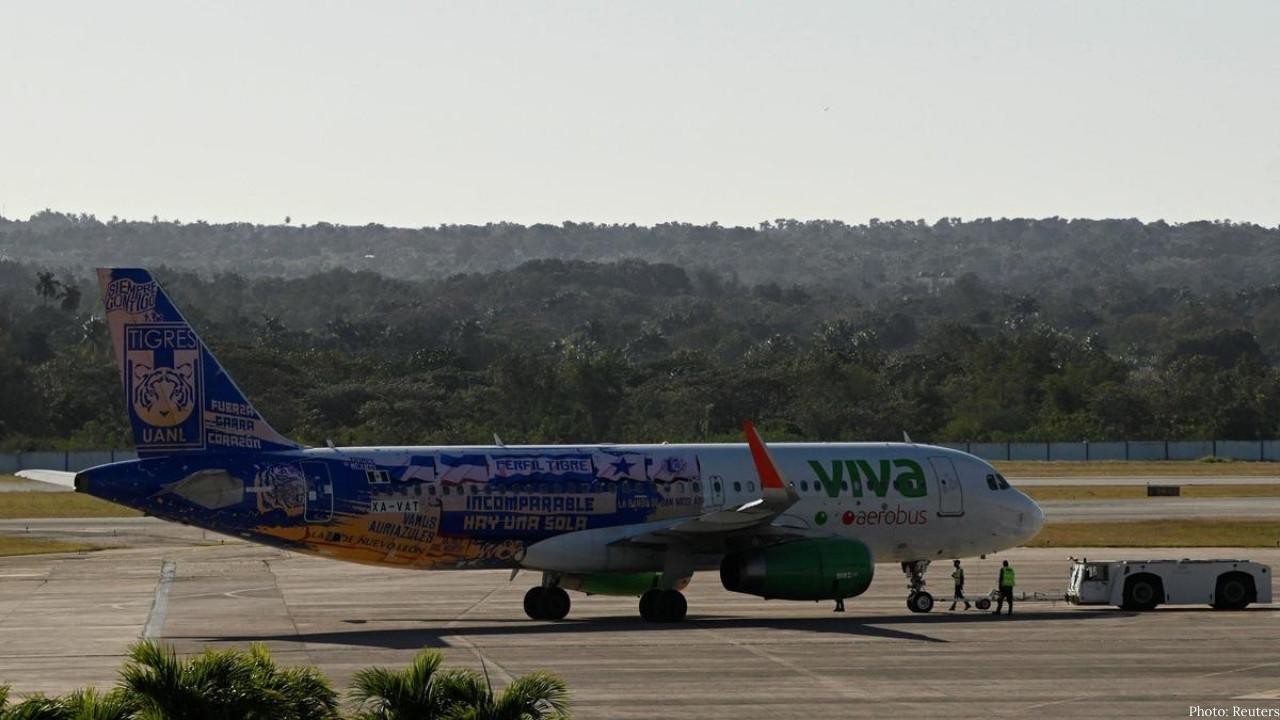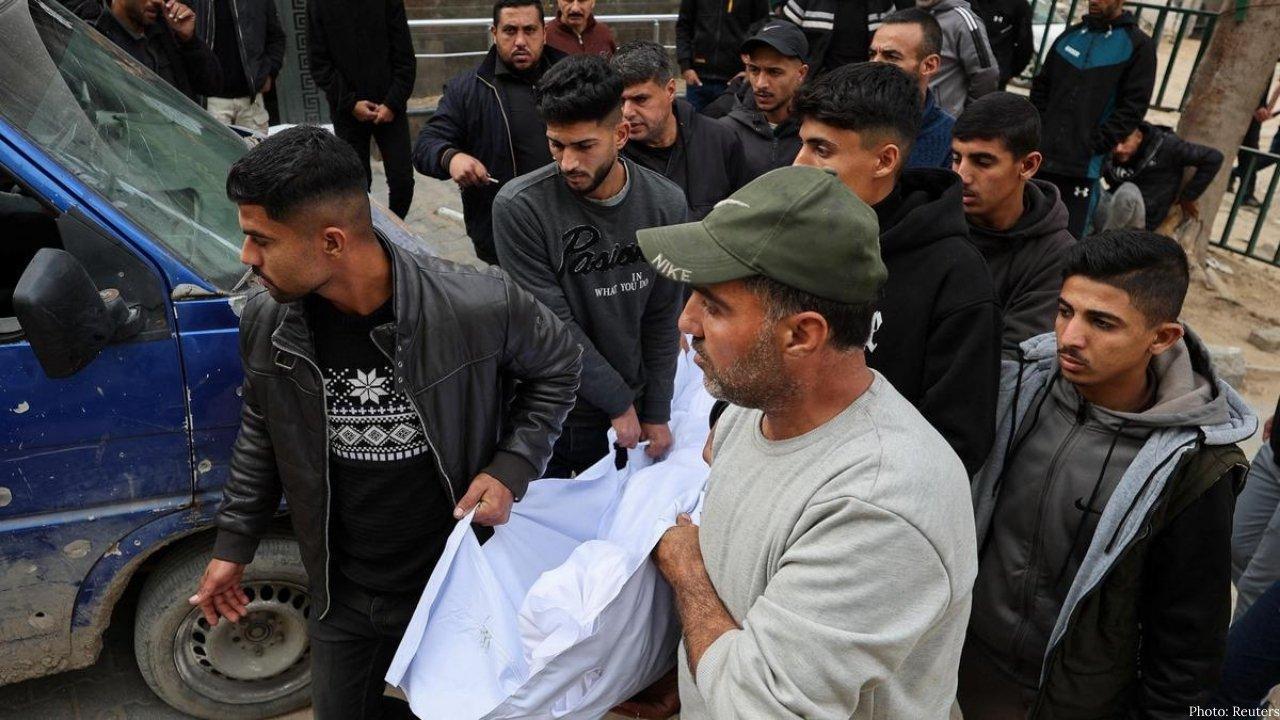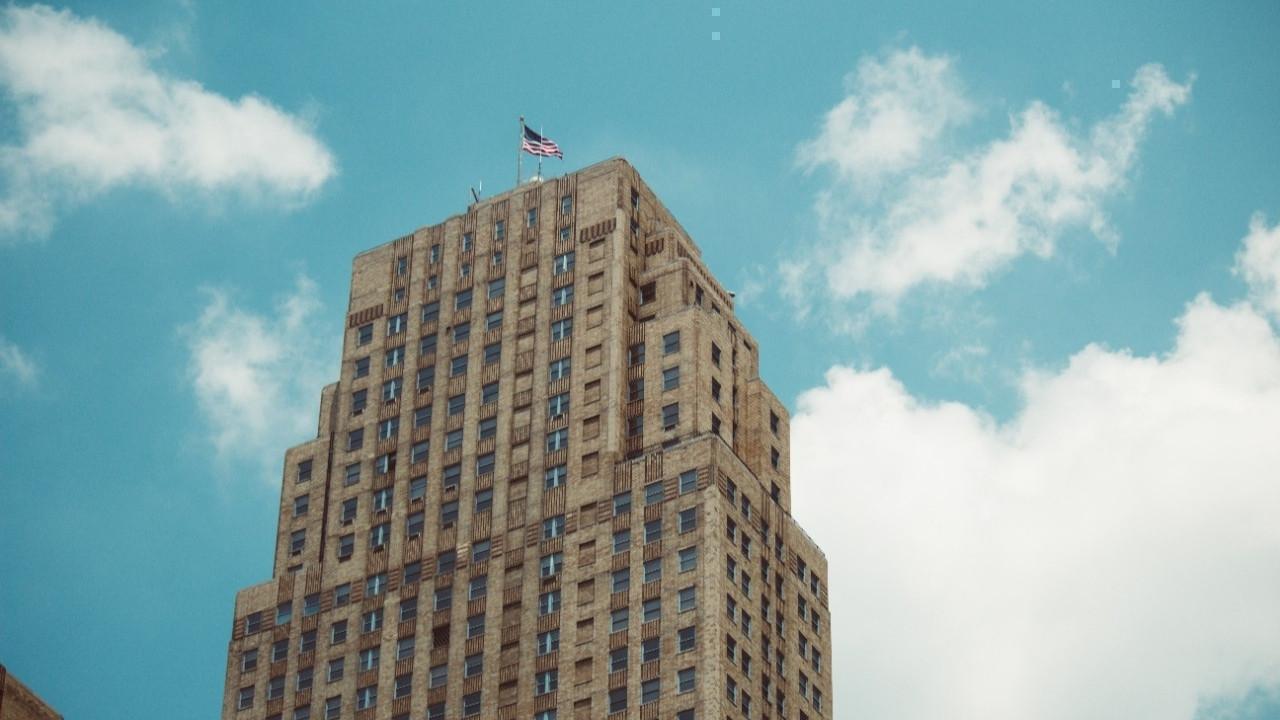You have not yet added any article to your bookmarks!

Join 10k+ people to get notified about new posts, news and tips.
Do not worry we don't spam!

Post by : Anis Farhan
Diwali, also known as Deepavali, is one of the most widely celebrated festivals in India. Marked by lights, fireworks, sweets, and prayers, it symbolizes the victory of light over darkness and good over evil. While its origins are deeply rooted in Indian mythology, Diwali has transcended borders over the centuries.
Today, communities around the world celebrate Diwali, infusing local traditions with the festival’s core themes of joy, family, and spirituality. The global celebration of Diwali highlights not only cultural integration but also the growing influence of Indian traditions worldwide. From North America to Southeast Asia, Diwali is embraced by people of various backgrounds, showcasing a shared appreciation for its message of hope and renewal.
In the United States, Diwali has grown into a major cultural event, particularly in cities with significant Indian diaspora populations such as New York, California, and Texas. Celebrations often include:
Community Gatherings: Indian associations and cultural groups organize public events featuring traditional dances, music, and stage performances.
Lighting and Decorations: Homes and public spaces are adorned with lamps, fairy lights, and rangoli patterns.
Food Festivals: Local Indian restaurants offer special Diwali menus with traditional sweets and snacks.
Educational Initiatives: Schools and cultural centers host workshops and storytelling sessions to educate non-Indian communities about Diwali’s significance.
The U.S. government has also recognized Diwali in several states through official proclamations, emphasizing multicultural inclusion and celebrating India’s rich heritage.
The United Kingdom boasts a long-standing tradition of Diwali celebrations, especially in cities such as London, Leicester, and Birmingham. Highlights include:
Cultural Festivals: Leicester’s Diwali celebrations are among the largest outside India, featuring street parades, fireworks, and performances showcasing Bollywood music and dance.
Religious Observances: Hindu temples and community centers organize prayers, bhajans, and special puja ceremonies.
Integration with Local Culture: British communities often incorporate local customs into Diwali, such as combining the festival with charity events or local fairs, encouraging cross-cultural participation.
In recent years, Diwali in the UK has become a symbol of cultural harmony, bringing diverse communities together in festive celebration.
Canada, home to a vibrant Indian diaspora, celebrates Diwali with a focus on both religious devotion and community bonding. Key aspects of Canadian Diwali include:
Public Ceremonies: Major cities such as Toronto and Vancouver host outdoor Diwali festivals featuring cultural performances and food stalls.
Family Gatherings: Like in India, families gather to perform rituals, exchange gifts, and enjoy sweets like ladoos and barfis.
Educational Outreach: Schools and public libraries often host Diwali-themed events to teach children about Indian traditions, mythology, and the cultural significance of light over darkness.
Canadian Diwali celebrations are notable for blending tradition with modern civic engagement, including charity drives and public awareness campaigns.
Singapore has one of the most elaborate Diwali celebrations in Southeast Asia, locally known as Deepavali. The festival is particularly vibrant in Little India, where:
Street Decorations: Colorful lights, illuminated arches, and intricate rangoli patterns adorn streets, attracting both locals and tourists.
Markets and Shopping Festivals: Local markets offer traditional clothing, jewelry, and sweets, making it a hub for festive shopping.
Cultural Events: Dance, music, and theatre performances celebrate Indian heritage while promoting cultural diversity within Singapore.
Religious Observances: Temples hold special ceremonies, including prayers and offerings to deities, maintaining spiritual traditions alongside public festivities.
Singapore’s Diwali celebrations illustrate how the festival can be a blend of cultural tourism, commercial activity, and religious observance.
Australia has seen growing Diwali celebrations in cities like Sydney and Melbourne, reflecting its multicultural society. Key highlights include:
Public Festivals: Cities host outdoor events featuring fireworks, dance performances, and food stalls.
Cultural Outreach: Community organizations use Diwali to educate Australians about Indian culture, encouraging cross-cultural understanding.
Family and Community Traditions: Indian families continue to celebrate at home with rituals, decorations, and feasts, maintaining the authenticity of the festival.
Australia’s approach emphasizes both community celebration and cultural education, making Diwali a bridge between tradition and modern multiculturalism.
Mauritius has one of the highest proportions of Hindus outside India, and Diwali is a major national celebration. The festival features:
Government Recognition: Diwali is a public holiday, and official ceremonies are organized to mark the occasion.
Traditional Rituals: Families perform prayers, light lamps, and prepare festive meals.
Cultural Shows: Schools and local organizations hold competitions, music shows, and dances to celebrate Indian heritage.
In Mauritius, Diwali serves both as a religious observance and a celebration of national identity, reflecting the strong cultural influence of the Indian diaspora.
Fiji, with its significant Indian population, celebrates Diwali with traditional enthusiasm. Highlights include:
Religious Ceremonies: Temples organize prayers and ritual offerings to deities.
Community Celebrations: Cultural performances, competitions, and communal meals foster a sense of unity among the diaspora.
Lighting Traditions: Homes and public areas are decorated with lamps and candles, echoing the festival’s symbolic theme of light overcoming darkness.
Diwali in Fiji is a fusion of Indian tradition and local customs, maintaining authenticity while reflecting the island’s diverse cultural landscape.
Trinidad and Tobago has a long history of celebrating Diwali, making it one of the most notable celebrations in the Caribbean. Key features include:
Fireworks and Festivities: The festival is marked by vibrant fireworks displays, public gatherings, and cultural shows.
Educational Programs: Schools integrate Diwali into lessons on culture, history, and religion, fostering awareness among young students.
Religious Observances: Temples host prayers and pujas, with devotees performing rituals and offering sweets.
Diwali in Trinidad and Tobago illustrates the strong preservation of Indian cultural identity in a diasporic context.
Malaysia celebrates Diwali as a public holiday, with communities in Kuala Lumpur and Penang taking the lead. The festival includes:
Community Events: Street markets, food festivals, and cultural performances showcase Indian traditions.
Religious Observances: Temples organize prayers, processions, and rituals to honor deities.
Family Gatherings: Homes are decorated with lamps, rangoli, and flowers, and families come together to enjoy traditional feasts.
In Malaysia, Diwali strengthens social cohesion, promotes multicultural awareness, and highlights the country’s rich Indian heritage.
Diwali’s global celebration underscores several important themes:
Cultural Exchange: Communities worldwide participate in Diwali events, fostering cross-cultural understanding.
Economic Impact: Diwali-related markets, tourism, and cultural events contribute to local economies.
Promotion of Indian Heritage: The festival helps maintain and showcase Indian cultural identity across generations.
Universal Message: Diwali’s symbolic focus on light, hope, and renewal resonates with people of all cultures, making it a festival with universal appeal.
Diwali has evolved from a regional celebration in India to a global festival embraced by millions worldwide. While each country adds its unique flavor—be it cultural performances, public festivals, or civic engagement—the essence of Diwali remains unchanged: the triumph of light over darkness and good over evil.
By observing Diwali around the world, communities celebrate shared human values, cultural diversity, and spiritual reflection. The festival serves as a bridge between tradition and modernity, connecting people across continents through joy, lights, and the enduring spirit of togetherness.
This article is for informational and editorial purposes only. It does not constitute professional, religious, or legal advice. Cultural practices may vary, and readers are encouraged to consult local authorities or community leaders for specific guidance regarding celebrations.










Study Warns Using AI for Medical Advice Is ‘Dangerous’ as Users Get Inaccurate Health Guidance
A major new study reveals that artificial intelligence (AI) chatbots and tools may give misleading o

Top Sci-Fi Movies Streaming on Netflix This February: Must-Watch Picks for Genre Fans
A curated news-style guide to the best science fiction films currently available on Netflix in Febru

BCCI Central Contracts Shake-Up: Kohli, Rohit Moved to Grade B as Board Reshapes 2025–26 List
Virat Kohli and Rohit Sharma have been placed in Grade B in the BCCI’s 2025–26 central contract list

Dalal Street Spotlight: Top 10 Stocks Investors Are Watching as Markets Open on a High
Indian stock markets begin the week with strong momentum, and several blue-chip and mid-cap stocks a

Market Movers Today: Key Stocks Set To Watch In Indian Markets
Indian equity markets are poised for active trading as several major companies, including Bharti Air

Milan Welcomes the World: Inside the Grand Opening Ceremony of the 2026 Winter Olympics
The 2026 Winter Olympics opening ceremony in Milan marked a defining moment for global sport, blendi